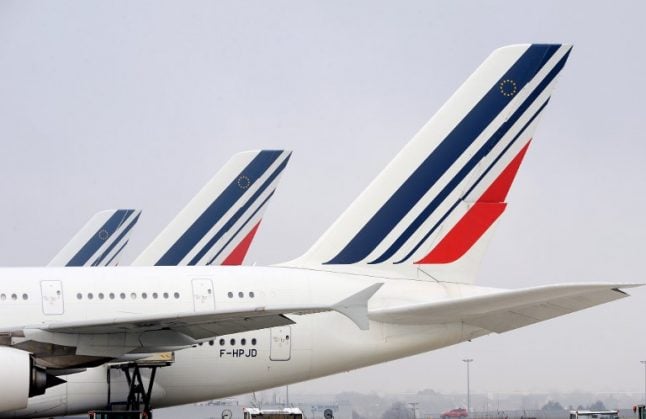
AIR FRANCE
Air France staff announce two more days of April strikes
Thousands of passengers are set to be affected by further strikes by Air France staff, after unions announced two more days of industrial action in April.
Published: 26 March 2018 16:31 CEST

Photo: AFP
More strikes were announced by the unions representing Air France staff on Monday in response to an ongoing dispute over wages.
Staff will now strike on Tuesday April 3rd and Saturday April 7th.
That's on top of the action already planned for March 30th (Good Friday), which looks like causing a major Easter headache for some travellers.
Unions representing pilots, cabin crew and ground staff have called the strikes to demand a 6 percent pay rise across the board to make up a loss of their spending power in recent years due to stagnating wages.
Management is offering a basic increase of 1 percent to be paid in two installments and a range of incentives, which trade unions have dismissed as “small change”.
The unions representing Air France staff have said they will toughen up the pace of the strike action in the face of the airline management which they say has “offered no concrete response” to the demands already expressed during the strikes of February 22nd and March 23rd.
The unions also accuse the airline's management of “seeking to create division”.
Negotiations are set to continue between the union and Air France's management on Tuesday so there may yet be a chance that the strikes are called off..
The airline was forced to cancel a quarter of its flights due to a strike on Friday which left just 70 percent of its long-haul flights and 80 percent of the airline's medium-haul flights in operation.
The call to strike was answered by some 35 percent of pilots, 31 percent of cabin crew staff as well as 29 percent of ground staff.
The airline advised passengers by text message if their flights had been cancelled but also told people to change their journey plans free of charge if possible.
READ ALSO:
Url copied to clipboard!


 Please whitelist us to continue reading.
Please whitelist us to continue reading.